The 15 Best Metallica Songs of All Time
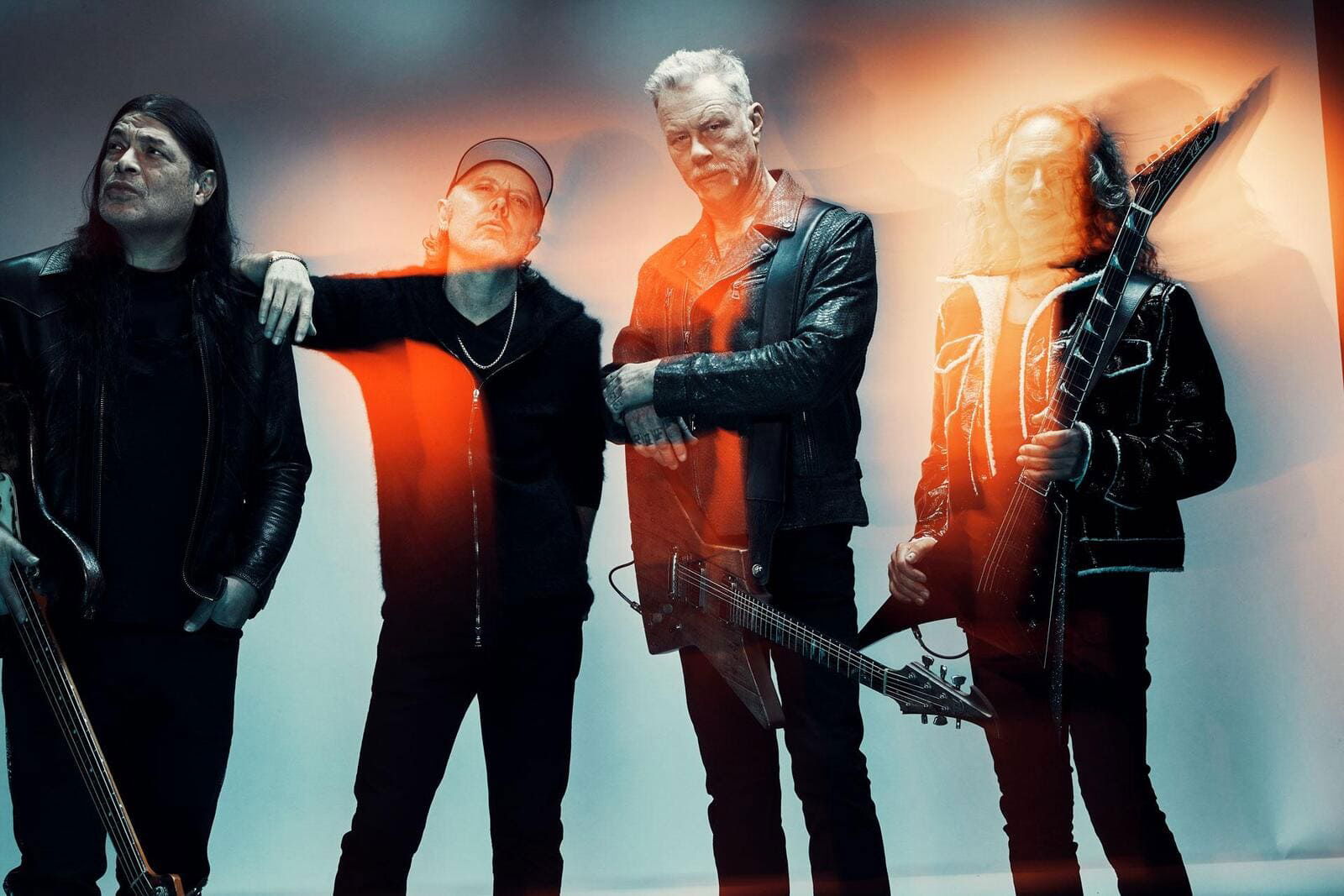
Metallica is one of the most popular bands of all time and that can’t be denied. Whether some people like the band’s modern version or not is a different story. But there is no denying what Metallica achieved in the 80s and 90s. Also, becoming arguably the most popular thrash metal band of all time is the stuff of legends.
Best Metallica Songs Ever
In that regard, picking up the best songs of this group can be a tough ordeal as there are a lot of quality tracks to choose from. Regardless, here are the fifteen best Metallica songs of all time!
You can also check the list of Metallica albums here.
15. Phantom Lord (1983)
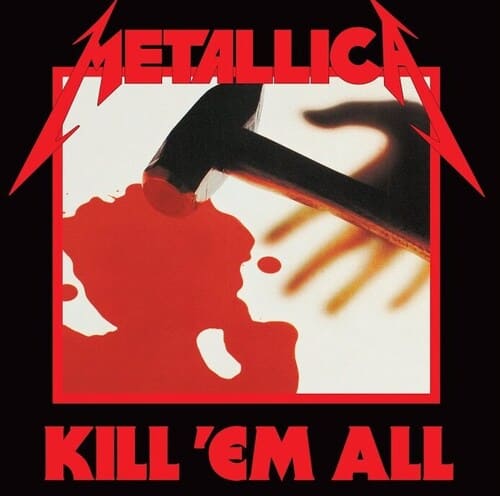
Kill ‘Em All had a lot of interesting and fun songs that perhaps don’t get a lot of attention nowadays due to the band having such a wide catalog, but Phantom Lord is definitely up there as one of their finest tracks.
Named after one of James Hetfield’s previous bands before Metallica, the main riff is exhilarating and sets the tone for the remainder of the song with its breakneck speed, although the melodic interlude highlights another of the band’s trends that would be developed with further releases.
Underrated is the name of the game when it comes to Phantom Lord. In fact, one of the few times it got the credit it deserved was when it was used as the entry song for the late professional wrestler Mike Awesome in the Extreme Championship.
14. Seek & Destroy (1983)
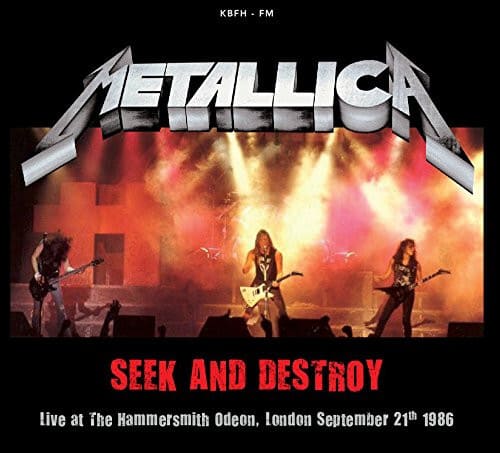
The most played song of the band’s debut album and for a good reason: it is perfect for live shows and the band has managed to make it even better during their live shows. This time around, the guys of the Bay Area make great use of their New Wave of British Heavy Metal influences, particularly Diamond Head, and created this marvelous Metal anthem that is timeless to this very day.
Like it tends to happen with Metallica, the riff is classic and the strongest aspect of the song, the singing is filled with attitude, and the whole vibe of the song feels a bit more lighthearted when compared to the rest of the album, which is a very nice change of pace.
As of a study made in October 2019, it is the third most played song in the band’s history, with a statistic of having been played 1,525 times. It has also been played in a wide variety of sporting events, by a lot of sports teams, and even a White Sox player, Gordon Beckham, used it as his entry song. It has also been covered live by the likes of Pantera, Exodus, Testament, and Juanes.
13. Ride the Lightning (1984)
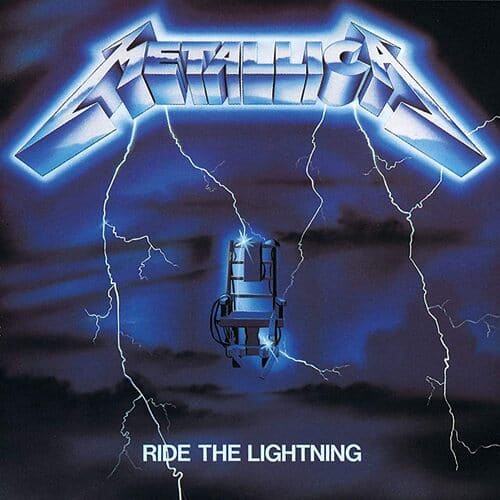
The title track of Metallica’s sophomore effort is just as good as the rest of the album, which is saying a lot! Ride the Lightning is chaotic, powerful, filled with the darkness that the entire record, and with a very electric (pun intended) performance by the band as a whole.
One of the last songs to have Dave Mustaine on writing credits, the guitar parts and the galloping rhythm of the song are the main selling points. And the lyrics about a man going to the electric chair and dying begin the trend of Hetfield’s storytelling abilities as a lyricist.
12. One (1988)
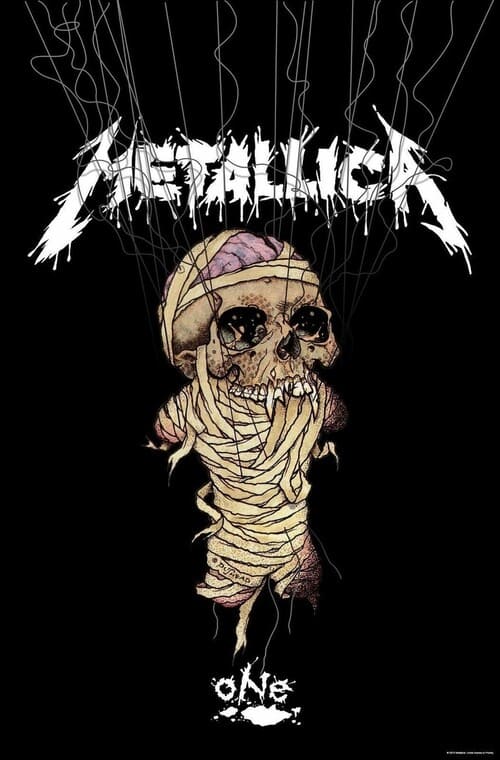
The hit single from 1988’s …And Justice for All album and their first ever music video, One is a classic of the Metal genre and one of the songs Metallica is most known for.
It follows their classic formula of a power ballad: a slow, haunting start that grows and becomes this mammoth of a song, combining the most melodic and soft elements of the group with their most aggressive, thus giving listeners a very balanced take of who they were during the late 80s.
The tale of a man that lost limbs and many of his senses after serving in war only adds to the unnerving feeling of the song, making One a very powerful and dark song that needs to be listened to at least once.
It was the first song in the band’s history to chart, reaching position 35 on the Billboard Hot 100, it was the band’s first track to be nominated for a Grammy, and it was the band’s first-ever Grammy when they won it in 1990 for Best Metal Performance. Guitar World also had the solo in seventh place in their “100 Greatest Guitar Solos” list.
11. The Unforgiven (1991)
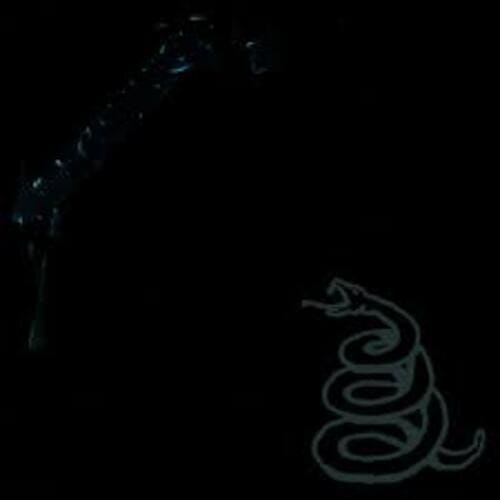
When Metallica released their self-titled album, commonly known as the Black Album, back in 1991, there were a lot of criticism and trepidations about how the band changed their Thrash Metal sound to something more along the lines of classic Heavy Metal with some clear commercial leanings. A lot of people have blamed producer Bob Rock for that change, but that was a decision that the group’s leaders, James Hetfield and Lars Ulrich, chose to do.
Having said all that, most people agree that The Black Album had some great tracks and The Unforgiven is a very good song. It has a very slow start but then explodes into a powerful main riff by Hetfield and Kirk Hammett on guitar while Lars Ulrich’s drums sound more powerful than ever before.
“That solo was raw emotion. I had no idea what to do; it all came to me as I played – real improvisation,” Kirk said in an interview in 2021 about the solo. “I was so happy after that, really excited and inspired.”
Rock gets a lot of criticism for his work with Metallica, but leaving that aside, the quality of the sound in the albums made by him is some of the best in the business. The Unforgiven benefits greatly from this as the song sounds clear, and mighty, and every instrument are heard quite well. Bassist Jason Newsted is the biggest example of this; much maligned and blocked in the …And Justice for All record, now his bass is clear as day.
James Hetfield gives one of his best vocal performances, combining an aggressive tone with a melodic chorus, ending up with a great ending that packs a punch. Plus, the lyrics about a man trapped in a prison during his entire life, dying before achieving freedom, are some of the most interesting stuff that the vocalist has written in his career.
The single went gold in the United States, platinum twice in Australia, gold in Italy, and silver in the UK. It was one of the most successful singles of the band’s most successful album.
10. Fade to Black (1984)
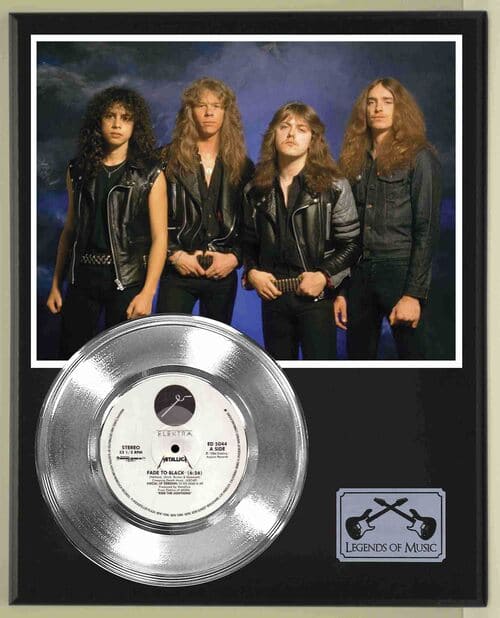
This was Metallica‘s first attempt at a power ballad and what an attempt it was! The combination of acoustic and electric guitars in the intro is a pure delight, with the band slowly speeding things up until a massive crescendo in the final portion of the track.
Fade to Black is an all-time classic in their catalog and its lyrics, dealing a lot with suicide and losing the will to live, make it one of the most haunting songs in Metallica’s vast history.
Speaking for Guitar World in 1991, Hetfield had this to say about the song: “Recording that song, I learned how frustrating acoustic guitar can be. You could hear every squeak, so I had to be careful. I wrote the song at a friend’s house in New Jersey. I was pretty depressed at the time because our gear had just been stolen, and we had been thrown out of our manager’s house for breaking sh*t and drinking his liquor cabinet dry. It’s a suicide song, and we got a lot of flak for it. As if kids were killing themselves because of the song. But we also got hundreds of letters from kids telling us how they related to the song and that it made them feel better.”
9. The Four Horsemen (1983)
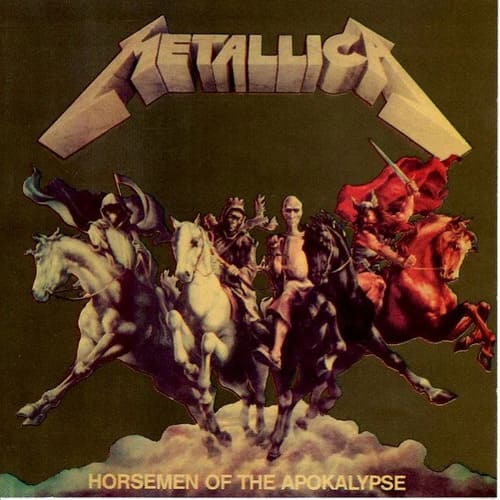
Metallica arrived in the thrash metal genre with an amazing, albeit flawed, debut in 1983’s Kill ‘em All. It was raw, powerful, and filled with intensity, and it paved the way for Thrash Metal to grow exponentially for the remainder of the decade. And when push comes to shove, The Four Horsemen might be the most iconic song of that record.
Initially written by future Megadeth guitarist Dave Mustaine as The Mechanix, The Four Horsemen might be Metallica’s first attempt at an “epic” of sorts. The song is over seven minutes long, has a melodic interlude (added by Hammett when he replaced Mustaine), and shows the group’s first tries at rhythm changes.
The song has a very strong main riff, it is very intense, and Hetfield’s vocal delivery is filled with the venom and rage of his young self. The lyrics, on the other hand, might be a bit childish, with the possibility of them referring to the band as the horsemen themselves, but other than that, top-notch stuff right here.
The song’s notoriety in recent years is quite clear as it was played in X-Men: Apocalypse movie and the second season of the Netflix hit series Stranger Things.
8. Dyers Eve (1988)
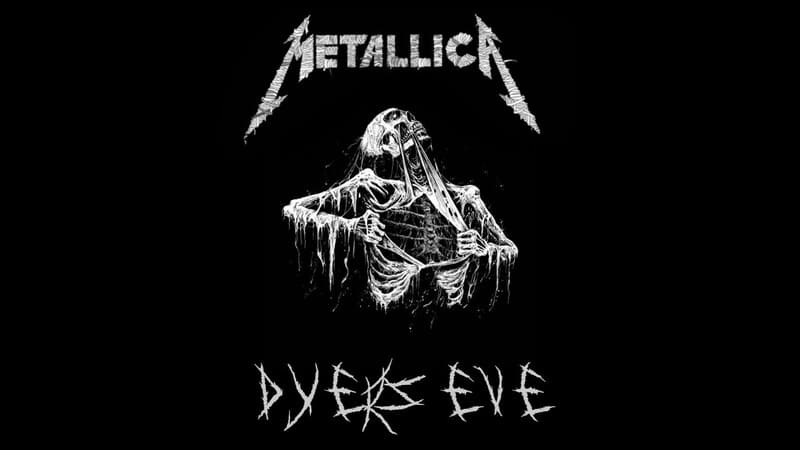
Dyers Eve is not only one of the best Metallica songs. But also one of the heaviest and one of the most underrated in their catalog. It probably doesn’t get a lot of exposure due to how the band barely played it live and was part of an album that didn’t get a lot of recognition in terms of popularity, …And Justice for All, beyond their hit single, One.
When it comes to Metallica songs, they often have some rhythm changes here and there, but Dyers Eve stands out because of how straightforward, heavy, and fast it is. Lars’ drums are powerful and have this machine gun-like sound that adds to the dark atmosphere of the song.
This track also receives a lot of attention for the dark, insightful lyrics that Hetfield wrote about his own personal experiences with his parents. This song in particular can be viewed as a key moment in his career as a lyricist as he started to become a lot more introspective moving forward in that regard.
In a 2012 interview with Rolling Stone magazine, Hetfield had this to say about the song: “‘Dyers Eve’ portrays a child who’s been sheltered from most of the outside world, as I was with this religion that my parents were involved in, Christian Science. That alienated me from a lot of the kids at school.”
7. Disposable Heroes (1986)
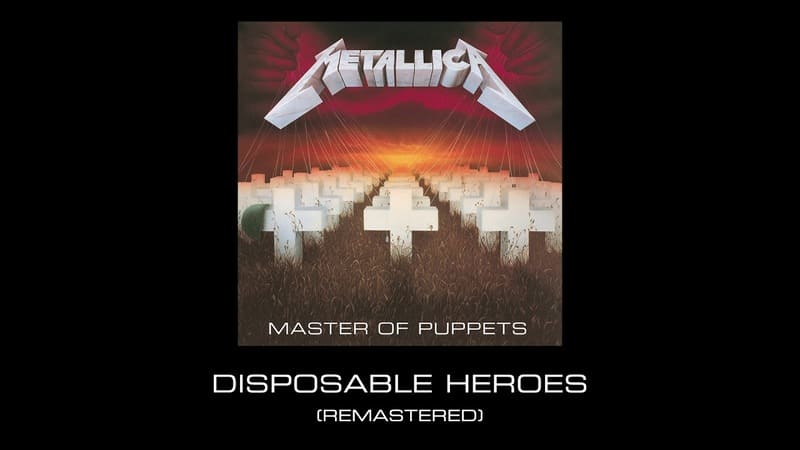
Master of Puppets is highly-regarded as one of the best Metal albums of all time and there is much to like about it, although Disposable Heroes is always going to be an underrated track when thinking about this record. Musically, lyrically, and vocally is one of the finest compositions Metallica has ever done.
This album was when they truly began to explore with longer, more complex compositions, and this one is exactly that, with a slow build-up in the intro and then kicking in with a powerful riff and vocal delivery by Hetfield. The song feels like a journey, often showing how much the band has progressed since the early 80s.
During a 2022 interview with Revolver Magazine, current Metallica bassist Robert Trujillo said that this is the best song to introduce people to the band, stating the following:
“For me, that’s pretty easy: ‘Disposable Heroes’ of the Master of Puppets album. And the reason is that it’s really in a lot of ways — especially in metal — the perfect balance of what I call ‘power groove.’
‘Disposable Heroes’ has that groove that leans more in that sort of headbanging kind of funky zone … Slayer has that, too, with certain songs. And then at the same time, it shifts gears, and you get the speed in there. It’s very well-crafted and has a little bit of everything, well, not even a little bit, it’s got a lot of everything. It’s always one of my go-to classic Metallica songs. Now, I know some people call it a deep cut … but ‘Disposable Heroes’ would be my go-for-broke Metallica classic song right there, ’cause it has everything.”
Lyrically, it tells the tale of the young men that join the army and how they are used as tools. It is thought-provoking and insightful at the same time, thus showing how many leaps and bounds James had progressed as a lyricist since the days of Kill ‘em All.
6. Blackened (1988)
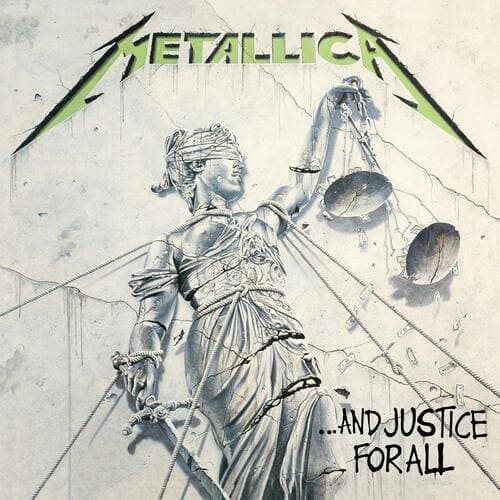
The opening track of …And Justice for All showed that, despite the tragedy of losing Cliff Burton in 1986, the band was still alive and kicking. It once again showed the band’s evolution, constantly pushing the envelope and this time around offering one of the best examples of what Thrash Metal is all about.
While the production of the album hasn’t aged well, the songwriting and the quality are still there. After a slow intro, the song kicks in with, you guessed it, a great riff by James. However, another major difference compared to previous albums is Lars’ use of the double pedal, with this record often regarded as his best performance on drums.
Blackened is one of the few Metallica songs to feature bassist Jason Newsted on writing credits, and during a 2013 interview with Blabbermouth, he had this to say about recording the song:
“Yeah, the main riff is mine. I wrote it on bass, though. I’ve never told this story before, and it warms me a bit. I’d only been in the band for a very short time. I was still in a little one-bedroom rented apartment. And James would come over to the house, like buddies. He’d come over for dinner. We’d hang out and play guitars on the couch. It’s was pretty fucking dreamy for me. Metallica was my favorite band. It was pretty surreal. I had a little four-track Tascam set up in the bedroom. So we went in there, and he’s got a guitar and I’ve got a bass. I’m fucking around with this riff. And then he started playing along, and the song started forming right at that time. I’m sitting up in my chair, like, Holy shit, dude. This is something! That was the first thing we ever constructed together. And him going, ‘Dude, that riff’s good enough to open our fucking album,’ really gave me a feeling of victory, because I looked up to him greatly, and still do to this day.”
This song in particular sounds really good live, which is something that can be said about the vast majority of this album as well.
5. For Whom the Bell Tolls (1984)

Ride the Lightning was Metallica’s second album and already showed how much they have progressed in just one year. If there is an album that showed their potential to be absolute Metal Gods, then this album is the one, and songs like For Whom the Bell Tolls, now a timeless classic of the genre, are a testament to that.
The galloping rhythm makes it stand out from other Metallica songs and Cliff Burton’s bass is also a major factor here, highlighting how important he was to the group’s musical development during those years. The song grows and evolves, with Hetfield offering some of his best vocal performances.
Lyrically, it is about Ernest Hemingway’s novel of the same name, dealing with the conflicts and consequences of war, which is a topic that the band has tackled on several occasions.
In March 2023, Rolling Stone Magazine put it in place 39 on their “100 Greatest Heavy Metal Songs of All Time” list. It also featured in the 1997 Spawn movie, the intro to Zombieland, WrestleMania XXVII, and Undertaker: The Last Ride.
4. Welcome Home (Sanitarium) (1986)
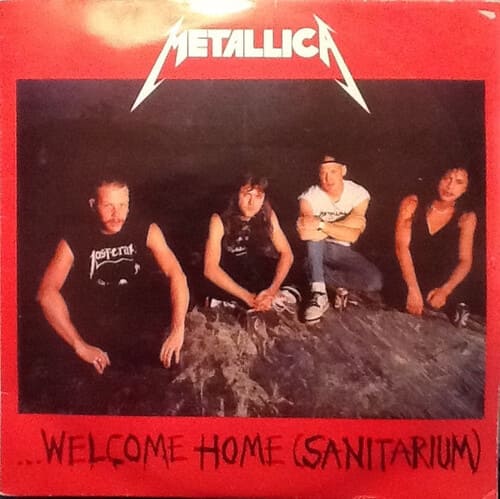
Metallica always stood out from other thrash metal bands. Because they were never scared of trying more melodic, slower styles, and Welcome Home (Sanitarium) highlights that, being a dark, disturbing power ballad that shows the level of musicianship that they were displaying during the Master of Puppets era. The song has a very powerful atmosphere and it grows and grows, much like the revolt happening in the sanitarium that is mentioned in the lyrics. On the other hand, the second half of the song is a Thrash Metal frenzy, with Kirk offering some marvelous solos, and James’ final vocal delivery being extraordinary.
It has been covered by the likes of Anthrax, Dream Theater, and Kreator, among many others, and Lars has gone on record saying that this is one of his favorite songs to play live, along with Sad but True.
3. Orion (1986)
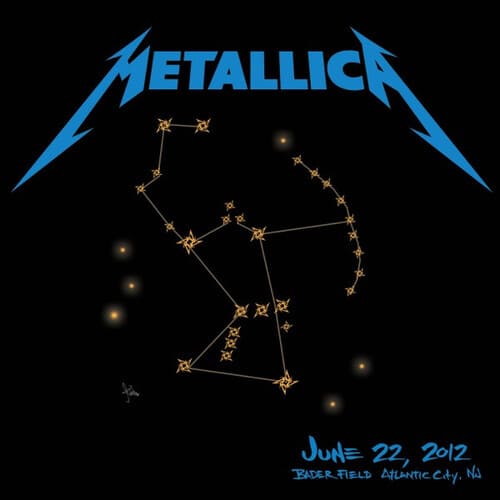
Instrumentals were a strong suit for Metallica in the 80s and Orion is the best they have ever done. Cliff Burton’s creative magnum opus is a testament to his qualities as a musician, and a bittersweet experience as it reminds everyone of how much of a genius was lost in 1986.
The main riff by Hetfield is one of the best he has ever crafted in his career, and while Lars’ drumming might not get a lot of plaudits, it gets the job done and offers some nice cymbals here and there. Of course, the star of the show is Cliff, offering a bass-focused section in the middle of the song that escalates into a grand finale that is simply breathtaking.
Very few Metallica songs can boast the musicianship and emotional weight that Orion has, and its third place here is duly deserved. Lars agrees with that, and has gone on record saying it:
“Obviously, the emotional component of ‘Orion’ with the Cliff element and the reciting of those words, those beautiful poetic words that he wrote toward the end of ‘Orion’ and that whole middle piece obviously is… it’s beautiful and so unique, unlike anything that obviously we had ever done before or pretty much done ever since. So ‘Orion’ obviously has a special place in my heart because of the Cliff factor, and always will.”
2. Master of Puppets (1986)
The only reason the title track of the Master of Puppets album is not in the first place is because of how much it has been overplayed but that doesn’t negate the fact that is a masterpiece and one of the best Thrash Metal epics out there.
That main riff is the stuff of legends and any metalhead with a moderate degree of knowledge of the genre has been familiar with it. However, the rest of the song also deserves all the accolades it has received over the years: it is a massive journey with a lot of rhythm changes, a strong sense of musicianship, and a band that was firing on all cylinders, eager to take over the world.
The slow and melodic interlude is the stuff of genius, adding to the dark atmosphere of an addict that is falling into the abyss, as the lyrics narrate, and creating this complex feel that is more akin to Progressive Metal than Thrash but this just highlights how ambitious these guys were during those years.
VH1 ranked it as the third greatest Metal song of all time, notorious Metal journalist placed in second place in his The Top 500 Heavy Metal Songs of All Time book (which had 18,000 votes, has to be said), Metal Hammer ranked it as the best Metallica song in 2020, and Rolling Stone put in second place in their “100 Greatest Heavy Metal Songs of All Time” in 2023.
It was played by the band when they made their cameo in The Simpsons, it recently featured in the climax of the fourth season of Stranger Things and has enjoyed a lot more appearances across media as well.
1. Creeping Death (1984)
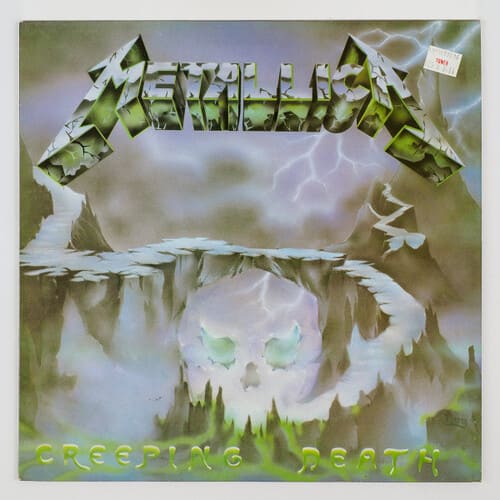
Metallica kick-off in their concerts and the best song they have ever written. There is no argument there: Creeping Death encapsulates everything great about Metallica in their prime, from the riffs to the vocals, the rhythm changes, the hooks, and the combination of sheer aggressiveness with powerful melodies.
When Lars kicks in with his drums at the start of the song, there is bound to be mayhem. And the song just goes from strength to strength, with the “Die by my hand!” interlude being one of the highest points in the band’s musical journey. It’s that good.
It was ranked in first place in Guitar World’s list of the greatest Metallica songs in 2015 and Rolling Stone readers voted it in 2014 as the sixth greatest song in the band’s catalog.
Picking the best Metallica songs is always going to be a tough ordeal, but there is no denying that Creeping Death is special and deserves first place on this list.